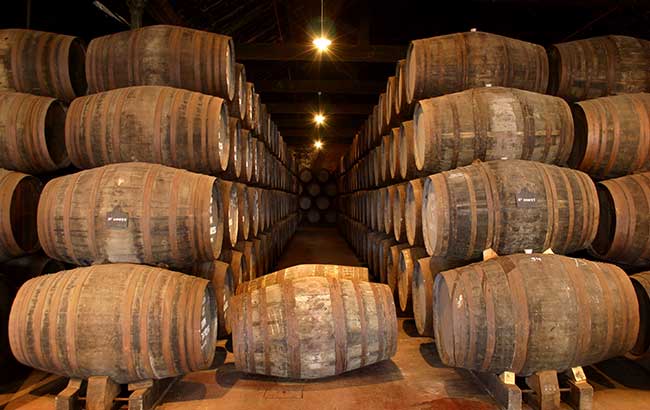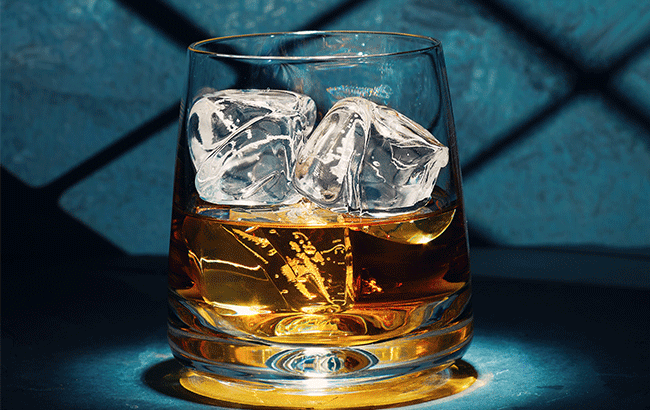This website uses cookies so that we can provide you with the best user experience possible. Cookie information is stored in your browser and performs functions such as recognising you when you return to our website and helping our team to understand which sections of the website you find most interesting and useful.
Producers fight for English whisky GI
By Alice BrookerDespite being a relatively young sector, English whisky is becoming increasingly popular, with the number of distillers growing. But now brands are determined to create a GI to clarify exactly what the liquid is.

*This feature was originally published in the April 2022 issue of The Spirits Business magazine.
English whisky may still be considered a newcomer in the grand scheme of the industry, but the speed of its progress has bowled over producers. Yet that’s not to say its journey has been smooth sailing.
While finding its feet sandwiched between the two of the biggest whisk(e)y producers in the world, Ireland and Scotland, England’s whisky industry has grappled with protecting its name from fraudsters, establishing credibility, and providing product transparency for consumers.
To fend off these problems, 16 distillers formed the English Whisky Guild (EWG), and proposed a geographical indication (GI) for English whisky. The application was submitted to the UK Department for Environment, Food and Rural Affairs in February, with the aim of establishing a legal definition of English whisky.
Tagore Ramoutar, director of the EWG and non‐executive director of The Oxford Artisan Distillery, penned the GI proposal. He said: “The GI is the easiest way to recognise what a group of producers is doing. It made most sense if we wanted to protect the future of English whisky, and also support the differentiation between different whiskies.”
English whisky producers, determined that space is made on the world whisky platform for their bottlings, are seeking equal treatment to their neighbours: Scotch and Irish whisk(e)y both already benefit from GI protection, as does Somerset cider brandy.
While Matt McKay, director of marketing and communications for Bimber Distillery, hopes English whisky will be considered “on a parity as other categories within the whisky sector” by drinkers, Andrew Nelstrop, owner of The English Whisky Company, stated there was “no question” that English whisky is seen on the “same level” as Scotch, Irish and Japanese whiskies by “those interested”.
The premium product provides the UK with the opportunity to be a “champion on the world stage”, he added. But the category’s high value and rate of growth comes at a cost.
“People are noticing the standard, the medals – there is a bigger opportunity for people to buy something more industrially produced and rebottled as English whisky,” explained Ramoutar. A GI would mean “protecting small producers producing small amounts”, he added.
McKay supports this notion, and states that a legal definition of the liquid would grant English whisky protection from “bad actors”.
“The industry has approximately 30 producers. At the minute, all those distilleries are independent. In relation to the GI application, there is a need to defend and define English whisky,” he said.
“We don’t want to be in a position where all of these people have invested an incredible amount of time, money and passion into the product, only for it to effectively be diluted by people bringing in spirits from outside England – and there being no official labelling rules because they can’t say what is English and what isn’t. They pass it off for a quick buck.”
Packaging and labels
Nelstrop stressed that one problem was that as long as a “fairly serious” amount of packaging is carried out in England, producers are allowed to label products to say ‘made in England’.
“I’m conscious that over the course of the last couple of years, there is whisky out there marketed as English whisky, and it hasn’t got a single drop in it that was made in England,” he explained.
Nelstrop shared that the emerging category is seeing replicas being made up of a mix of “Canadian, Irish, or Scotch” whiskies.
The fact that English whisky relies heavily on single malts, as opposed to blended whiskies, makes the bottlings all the more valuable, too, experts believe.
Nelstrop added: “Every drop of English whisky is effectively going to be from a single distillery. So what you’re buying is pretty much single malts and that’s it. It narrows the marketplace quite a bit.
“Our high-quality product could be easily ruined by somebody flogging whisky not made to our own exacting standards, under the banner of English whisky.”
A GI is also wanted to offer transparency when buying the liquid. Ramoutar said a GI “safeguards what consumers are currently paying premium for, and lets them know what they’re going to get”.
McKay confirmed that the guild “wants the customer to have a fundamental knowledge of what English whisky means. If there are whole new bottles where you have no idea what you’re getting, that’s a bad situation for the customer, and for the industry, because there’s no sense of trust or provenance,” he explained.

Complicated definition
However, defining English whisky isn’t as simple as producers would hope: “It’s more complicated than ‘English whisky is made in England’,” McKay explained.
“Does that mean it’s distilled or matured in England? Was the wash made in England? The raw ingredients are English? Matured in England? That’s certainly part of the GI application, that sense of place.
“It is English‐made, not because something was put in a bottle at some point in the country, but the entirety of that process has taken place in England.”
Ramoutar has proposed the GI specifies that the whisky wash is made in England, the spirit is distilled in England and the casks are matured in England. In terms of raw materials, it also outlines that the grain needs to be from the UK.
McKay did point out that, while some parts were straightforward, it was difficult to solidify definitions while keeping room for innovation. “Regulations are difficult, because you are drawing lines. Lines are not as easy to draw as you might think,” he said.
“There needs to be flexibility to allow innovation, for current distilleries and future distilleries.”
The timeline of English whisky has been an interesting one to say the least, and producers consider its journey to have only just begun.
Nigel Mills, CEO of The Lakes Distillery in Cumbria, noted the industry was “coming of age. We started distilling in 2014. There was Cotswolds Distillery, ourselves, The English Whisky Distillery, and Adnams.
“It used to be very, very small. Fast forward, and there are 30 producers. It’s a perfect time for the industry to come together to find itself,” he enthused.
McKay considered the steps the liquid has taken to gain the respect it has today. “Not all that long ago, if you said English whisky, people would either shrug or have a wry laugh to themselves. But we’re seeing a real move to people being quite interested in what English producers are doing,” he said. “We see ourselves as part of this renaissance of English distilling.”
With this in mind, as far as Nelstrop is concerned, “the faster there’s a rule, the better. The GI protects us from the person that doesn’t have an undying love for the industry. I don’t think you will find a single other English whisky producer out there who disagrees with that,” he concluded.
Common ground
This common ground that whisky distillers have found extends beyond a GI proposal, McKay revealed.
“While the launch of the EWG will take place later this year, in the longer term we are looking to achieve more than just a definition of English whisky – we’re looking to collaborate, educate and inspire,” he said.
“The scope of this cross‐sector partnership still needs to be established, so you’ll need to wait for the official launch – however, it will invariably extend outside of just England and into other international markets – particularly those who haven’t as yet really experienced the qualities of English whisky.”
While English whisky has broken ground beyond expectations, its future seems just as bright and exciting, as distillers envisage a future in which they collaborate to showcase the “features and uniquenesses that make up English whisky”.
McKay added: “And that’s something that I hope that all whisky distilleries across England will get behind and benefit from.”

